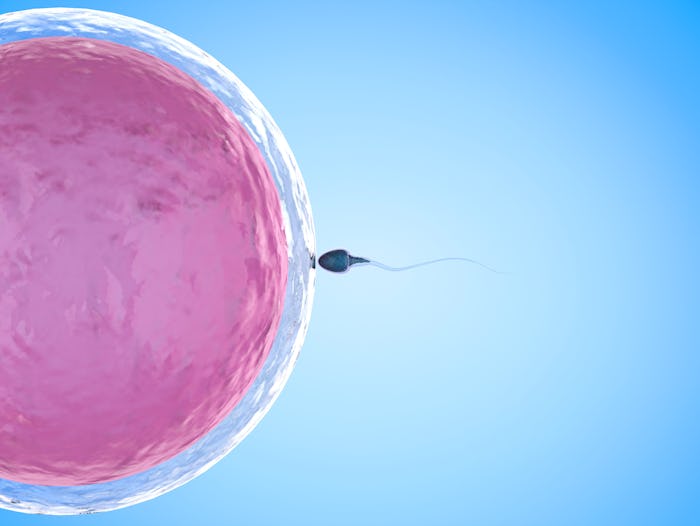Life

Can A Semen Allergy Prevent Pregnancy?
Off all of the things that can prevent a pregnancy, a semen allergy isn't usually what comes to mind. However, as unfortunate as it sounds, semen allergy is a real thing that many people have to work through when it comes to getting intimate with their partner. But what exactly is this sensitivity and can a semen allergy prevent pregnancy? Knowing the facts can help you learn how to best handle the allergy when it comes to your fertility.
According to the International Society for Sexual Medicine (ISSM,) semen allergy — sometimes called seminal plasma hypersensitivity — is a rare sensitivity to the proteins in a man's semen. The allergy affects mostly women, and usually manifests itself in the form of a rash, hives, swelling, or itchiness in the vagina or other areas that come in contact with semen. Some people even experience difficulty breathing, or in rare cases, can go into anaphylactic shock, the Mayo Clinic stated.
To make things even worse, if a woman has had multiple partners, the ISSM also noted that a reaction may happen with one partner and not others. The reaction is oftentimes misdiagnosed as vaginitis, herpes, or a yeast infection and won't occur when a couple uses a condom, since the semen won't directly come in contact with her skin or vagina. However, when it comes to pregnancy, a semen allergy doesn't have as much of an impact as you'd think.
Although semen allergies can certainly make it difficult to conceive for obvious reasons — no one wants to risk an allergic break out while trying to get pregnant — the allergy doesn't have an effect on a woman's fertility, the aforementioned Mayo Clinic article noted. So just because there is a sensitivity to semen present doesn't mean that a woman can't get pregnant if the couple has unprotected sex.
However, practically speaking, a semen allergy can make getting intimate very difficult in the first place and make conceiving even harder. Because of the reactions that can occur, The Bump noted that women with a semen allergy who are trying to conceive should first get their partner's semen tested to make sure it is the true cause of their reaction. Then, if the results are positive, they can consider intrauterine insemination (IUI) or in vitro fertilization to get pregnant. This method of conception will not cause a reaction since the semen won't come in contact with her skin or vagina.
As difficult as a semen allergy can be to handle, couples wanting to get pregnant can be encouraged knowing that the allergy doesn't have to get in the way of their desire to start a family.